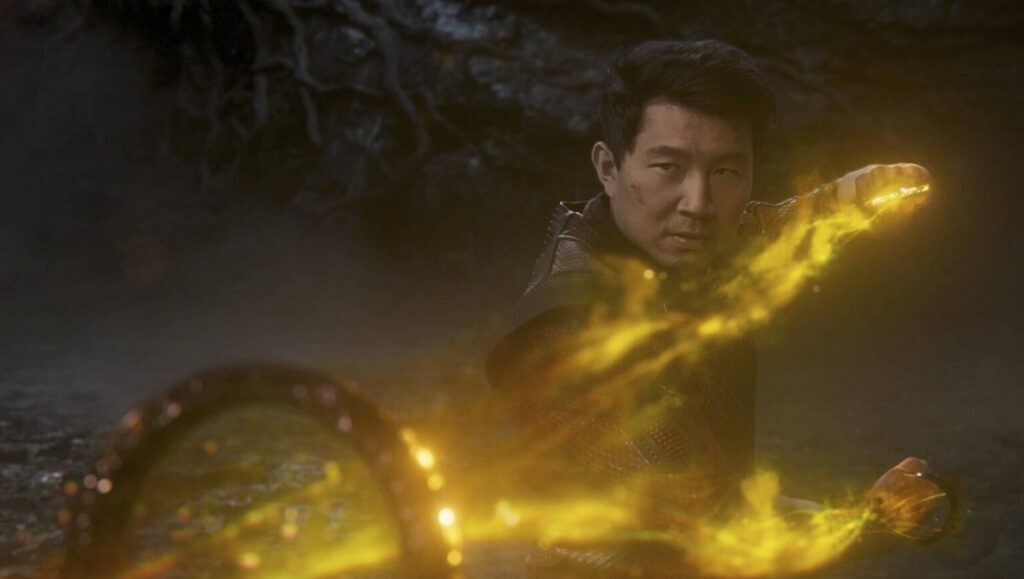Shang-Chi is perfunctory origin story work boasting little characterization and an overestimation of its representational currency.
The Marvel Cinematic Universe marches on undaunted with Shang-Chi and the Legend of the Ten Rings, which, despite its representational bona-fides, could not be a more purely generic exercise from this machine that eats cinema. Simu Liu is the eponymous Shang-Chi, the son of Chinese warlord Wenwu (Tony Leung, gorgeous and slumming it) who wields the eponymous rings, powerful artifacts that render him immortal and unbeatable. Together with his bestie Katy (Awkwafina, surprisingly unfunny), he must stop his pops from opening a dimensional portal that will unleash some horrible bullshit or whatever — you’ll be checked out by then.
Shang-Chi is an entirely typical comic book origin story film. That a sentence like that even makes sense is an indication of the relative quality we’re talking about here. The film is merely a placeholder to introduce a character to be later elaborated upon, peppered with the obligatory fights and VFX, thinly disguised as both a family drama and marketed as a landmark in the representation of Asian stories and performers on screen. So let’s go through the list. Liu is certainly adequate and charming enough in the lead role, even though Shang-Chi has no discernible character traits or defects beyond being the protagonist of the film. He’s never conflicted in his decision-making and always does the right thing, which is boring. Any internal conflict that is expressed comes from Leung, who is given very little to do here but remains as radiant a screen presence as ever.
There are a smattering of decent martial arts sequences (choreographed by the recently, suddenly departed Brad Allan), and to his credit, director Destin Daniel Cretton doesn’t shred them in the edit or conceal them with jerky handheld, although they are very apparently heavily augmented by computer effects. A fight on a runaway bus wants very much to enter the realm of classic Jackie Chan work (Allan was a crucial part of Chan’s stunt team for many years), and if it doesn’t quite get there, it’s a heroic attempt. A later sequence set on a skyscraper-side scaffold features some looping camera curlicues as well. And the climactic battle between a bunch of weird monsters and giant CGI dragons, meanwhile, is just yet another Marvel digital smear.
As far as Shang-Chi’s vaunted position as a representational milestone, there’s something seriously missing. It may be a big step for an American studio film at this budget level, but it’s cribbing shamelessly and without even the slightest innovation from, say, 75 or even 100 years of Chinese wuxia and martial arts filmmaking. To suggest that it’s melding elements of those films with a superhero narrative is, to put it mildly, a bit disingenuous. Wuxia is already essentially superhero work that predates the latter genre by centuries, and so simultaneously ignoring and ripping off that rich tradition is disheartening, to say the least. How many times can we dress up Asian actors in these same costumes and make them do wirework flips and call it progressive? It is indeed always a pleasure to see these performers on screen, and the work is certainly competent, but the disguise here is just that — a disguise.


Comments are closed.